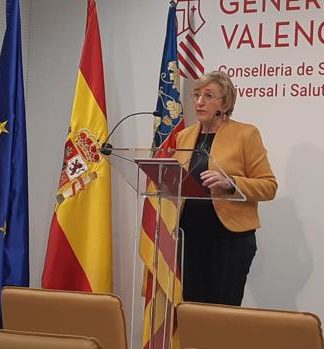San Fulgencio
February 28, 2017.
Dear Sir,
On first reading, I found nothing with which to disagree in the letter, ‘The Will of the People?’ (CBN News: March 2). Though somewhat pointless at this late stage in proceedings, it appeared cogent and sensible.
However, reading it again, J.J.Sellman is guilty of rank sophistry.
Every argument contains enthymemes; that is, assumptions which are not explicitly stated. Where they are not self-evident, true debate requires they be clarified and justified, or there is a danger of a complex argument being constructed on the basis of an invalid premise.
For example, in the rest of this letter, I am going to assume that J.J.Sellman is male on the basis of the convention that it is generally only men who use their initials in a signature. This enables me to use a polite form of address, rather than the surname only, in referring to the correspondent. If my assumption is wrong, I apologize.
Let me quote Mr Sellman:
‘…17 million are dictating the future of us all and the views of 29 million are valueless.’
Now, let me be as precise as I can about the result of the EU referendum. 17,410,742 (51.89% of votes cast) voted to leave the EU. 16,141,241 (48.11%) wished to remain. With 25,359 spoilt ballot papers, this gives a grand total of 33,577,342 votes cast.
On a turnout of 72.2%, this means the number of people registered to vote in Britain was 46,506,014. This, in turn, means that 12,928,672 electors did not vote in the EU referendum.
It is mind-boggling that almost 13 million people did not bother to turn out to vote on such an important issue. We can speculate about the reasons for their failure to exercise their democratic right; maybe they could not decide on the arguments presented, or maybe they were content to accept the result either way, maybe they thought it was a foregone conclusion, or maybe they just did not give a damn… However, we cannot infer anything about their opinion in respect of the substantive question posed in the referendum.
Mr Sellman invalidly includes the 13 million in with the figures for ‘Remain’. It would be just as legitimate (or, rather, illegitimate) for a ‘Leave’ voter to claim that over 30 million people (65.24% of the electorate) were happy to leave the EU.
He also argues that a ‘simple majority’ means that about 23,250,000 votes (50% + 1 of the total electorate) would be required to win, going on to mention that this is (and I quote) ‘…far more than the 17,410,742 votes obtained by the Leave campaign.’
Sorry, Mr Sellman, more sophistry! What is sauce for the goose is sauce for the gander. On your definition of a simple majority, both sides would have required over 23 million votes. Although the ‘Leave’ campaign did not reach that mark, the ‘Remain’ campaign failed to do so even more abysmally.
It smacks of wanting to have your cake and eat it. The argument only holds if voting is compulsory – and, in the UK, it is not. Abstention is a perfectly legitimate political stance
Since universal suffrage was introduced by the Representation of the People Act 1918, not one UK government has been elected with a simple majority as defined by Mr Sellman. Indeed, every UK government since 1945 has been elected on a minority of votes cast. This is inevitable given the structure of the political and voting systems. Would Mr Sellman argue that all these governments were illegitimate? If so, he needs to campaign to change the system and I refer him to the Electoral Reform Society.
No system is perfect and there are many arguments against the ‘first past the post’ (FPTP) voting system, but that is the system that Britain has. A referendum was held in May 2011 on changing from FPTP to the Alternative Vote (AV) system. AV was rejected 67.9% to 32.1%, albeit on a pitifully low turnout of 42.2%. However, note that using Mr Sellman’s logic, all abstentions would have to be counted in favour of the ‘status quo’.
Thankfully, referendums are rare events in British politics. I say ‘thankfully’ because they contravene the principles of parliamentary sovereignty and representative democracy. Clement Atlee called them, ‘…a device of dictators and demagogues…’, and they are odious if only in their impracticability.
In practice, they have always been confined to major constitutional issues. Consequently, there is no statutory instrument determining the format or basis for any referendum within the United Kingdom, though the Political Parties, Elections and Referendums Act 2000 contains some guidelines about the operational mechanics of a referendum.
This means that each referendum requires primary legislation. In the case of the referendum on EU membership, this was contained in the European Union Referendum Act 2015, and the subsequent European Union Referendum (Conduct) Regulations 2016. The government (and subsequently, members of parliament through amendments) are free to include or add any conditions and requirements they deem necessary at any stage throughout the process of legislation.
This would include the establishment of a ‘winning post’ for each referendum. This issue was not addressed in the European Union Referendum Act.
Neither was it addressed at the various stages of the Bill.
The United Kingdom does not have a written constitution. We have nothing approaching article 5 of the US Constitution which requires proposals for constitutional change to demonstrate overwhelming support (67%) in congress. One can imagine the outcry from certain sections of the British press had the government proposed abandoning our ‘traditional’ FPTP voting system in favour of more stringent conditions for success.
I can only find one attempt to raise the bar in an amendment tabled by Alex Salmond. He wanted what is known as a ‘double majority’ requirement for withdrawal. That is to say, a majority (of votes cast) in the whole of the UK and majorities (of votes cast) in each of its constituent parts. Needless to say, this met with widespread opposition, especially from Conservatives.
The thrust of Mr Sellman’s letter appears to question the legitimacy of the referendum. On this issue, I refer him to the article by Richard Ekins of St. John’s College, Oxford on the website of the UK Constitutional Law Association.
For information, contrary to the assumption many people may make on reading this letter, had I been allowed a vote (still a sore point), I would have voted for ‘Remain’.
Yours faithfully,
Joe Pilkington.








































